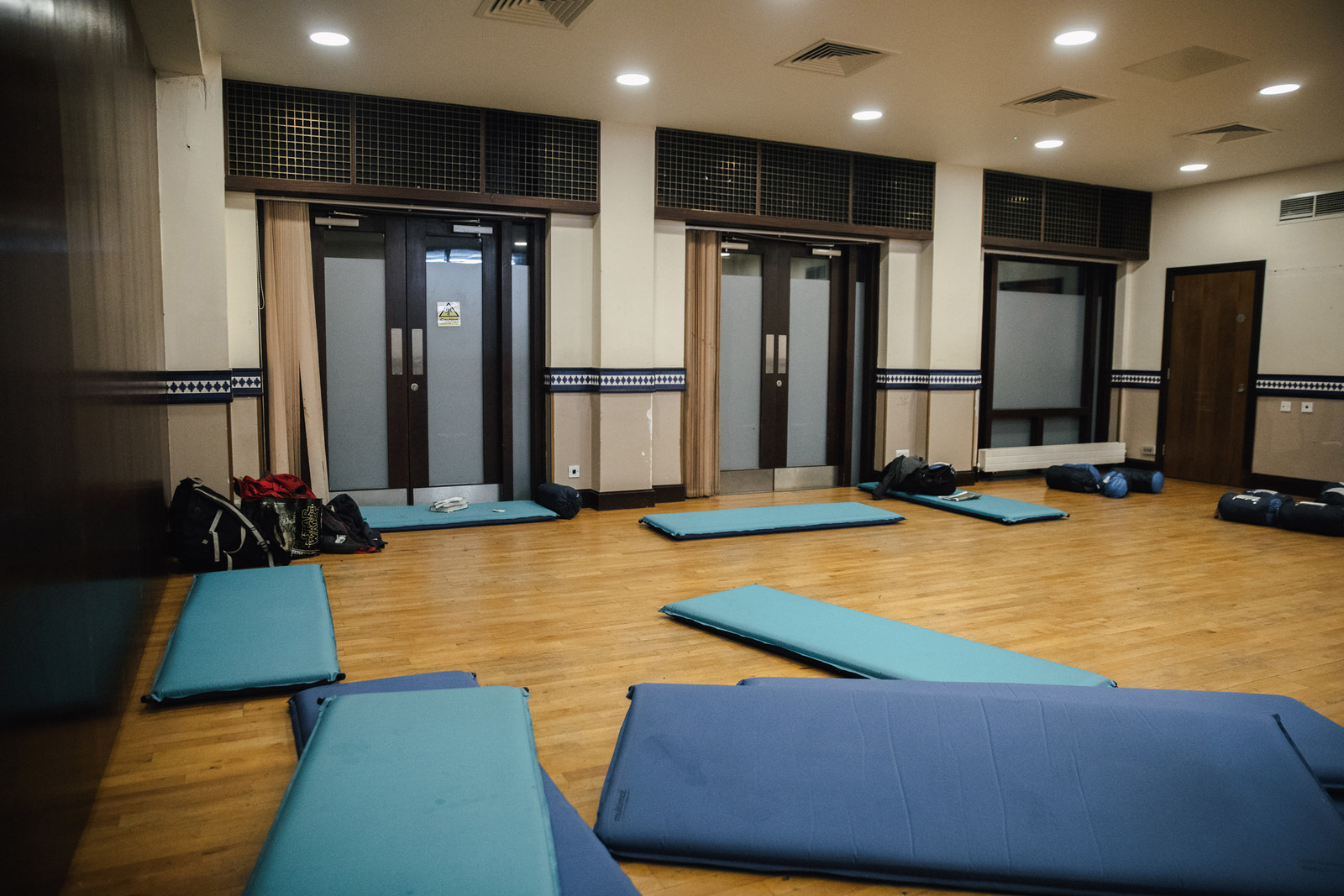Phil Stone, which is not his real name, is 43. With a slight Liverpudlian accent, he tells BuzzFeed News he worked for 12 years as a chef in Liverpool restaurants. He came to London with friends for a new job, only to discover it didn’t exist when he got here, and he didn’t have the money to buy a ticket back.
“You get used to it. It was a bit strange in the beginning,” Stone says, scooping up the rice on his plate. “They just kept me waiting and waiting and waiting. Then they said something like ‘Huh, job? We don’t have a job for you.’ So I came here with false pretences. They didn’t even know I came. It was all very dodgy.”
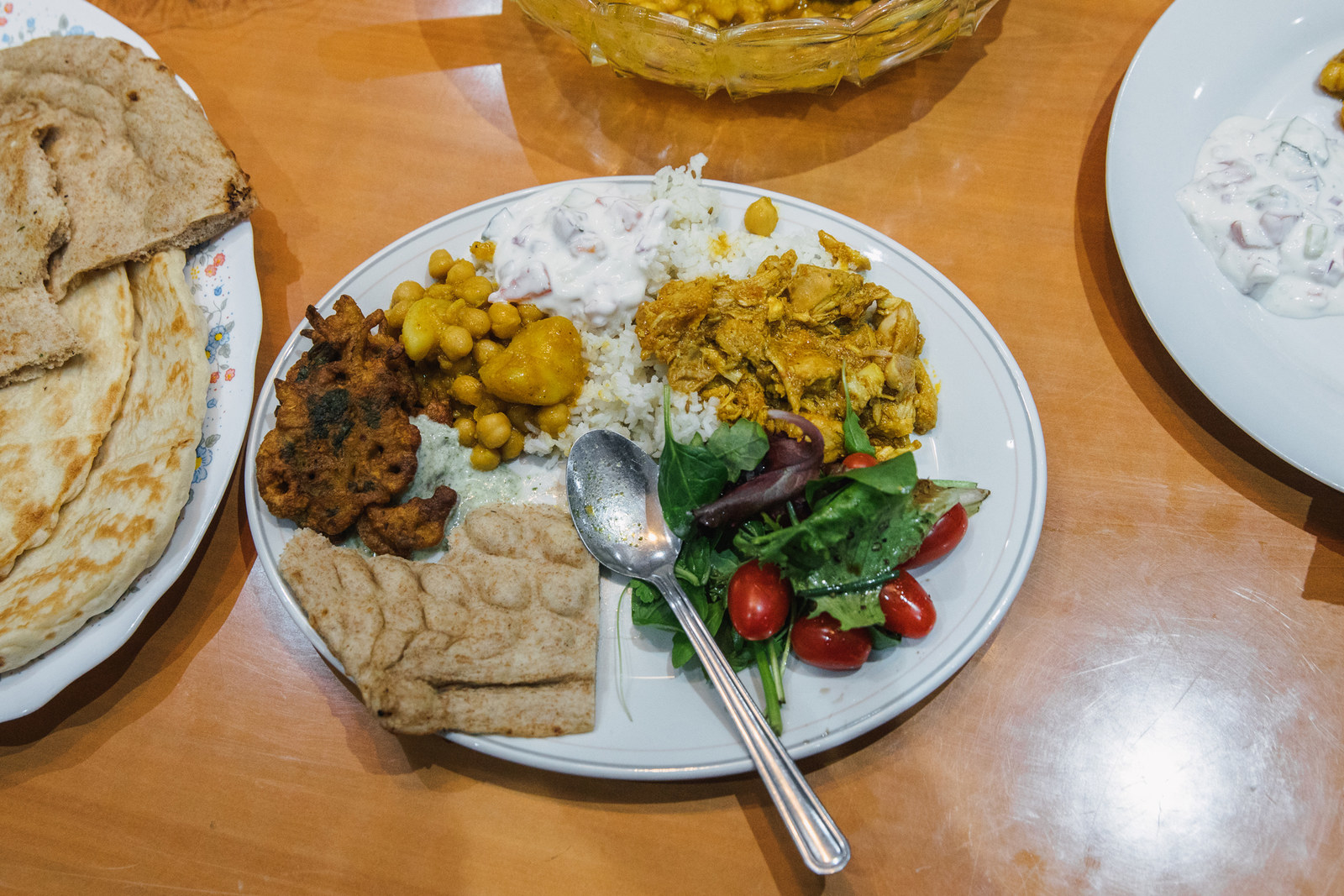
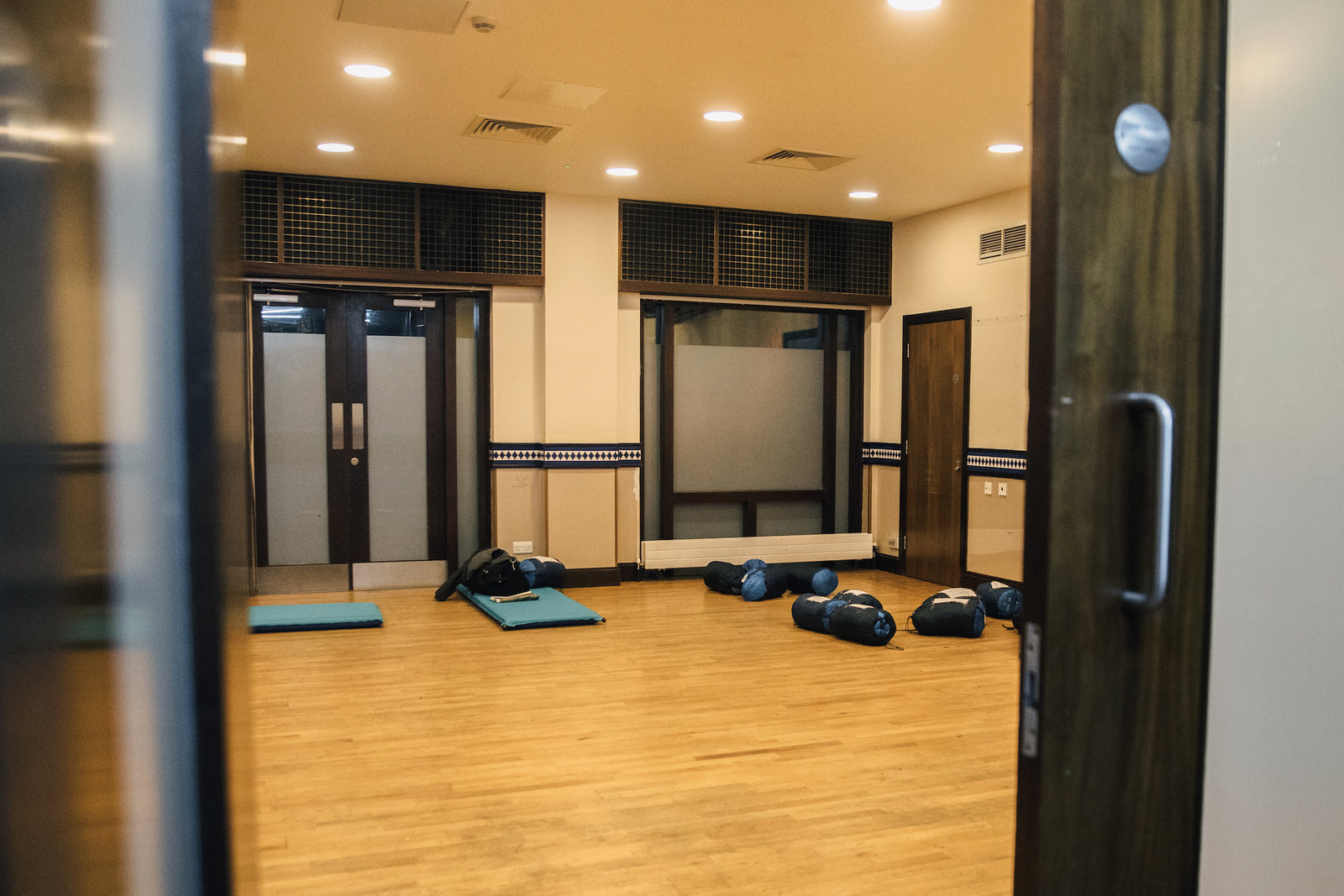
“We try to help each other, but that’s more in the way of money or cigarettes, or more in the way of food. What’s very common among the homeless is they point you out where to get your next meal, or where to get your vouchers or where to do your clothing, or where to get a shower.”
He says he carries only one bag, and keeps his other belongings in temporary storage at the day centre. “I guess it’s pride. I don’t want to walk on the street with a bag full of clothing.”
“The first thing we did was to respond to that by opening our doors to anyone who needed temporary shelter, gave food and drink, and that immediately made us a centre for emergency services for Grenfell,” says Sayed, who is eating with the guests in the canteen.
“Since then we’re now playing a very central role in the faith community … and also facilitating engagement between the local authority and the community.”
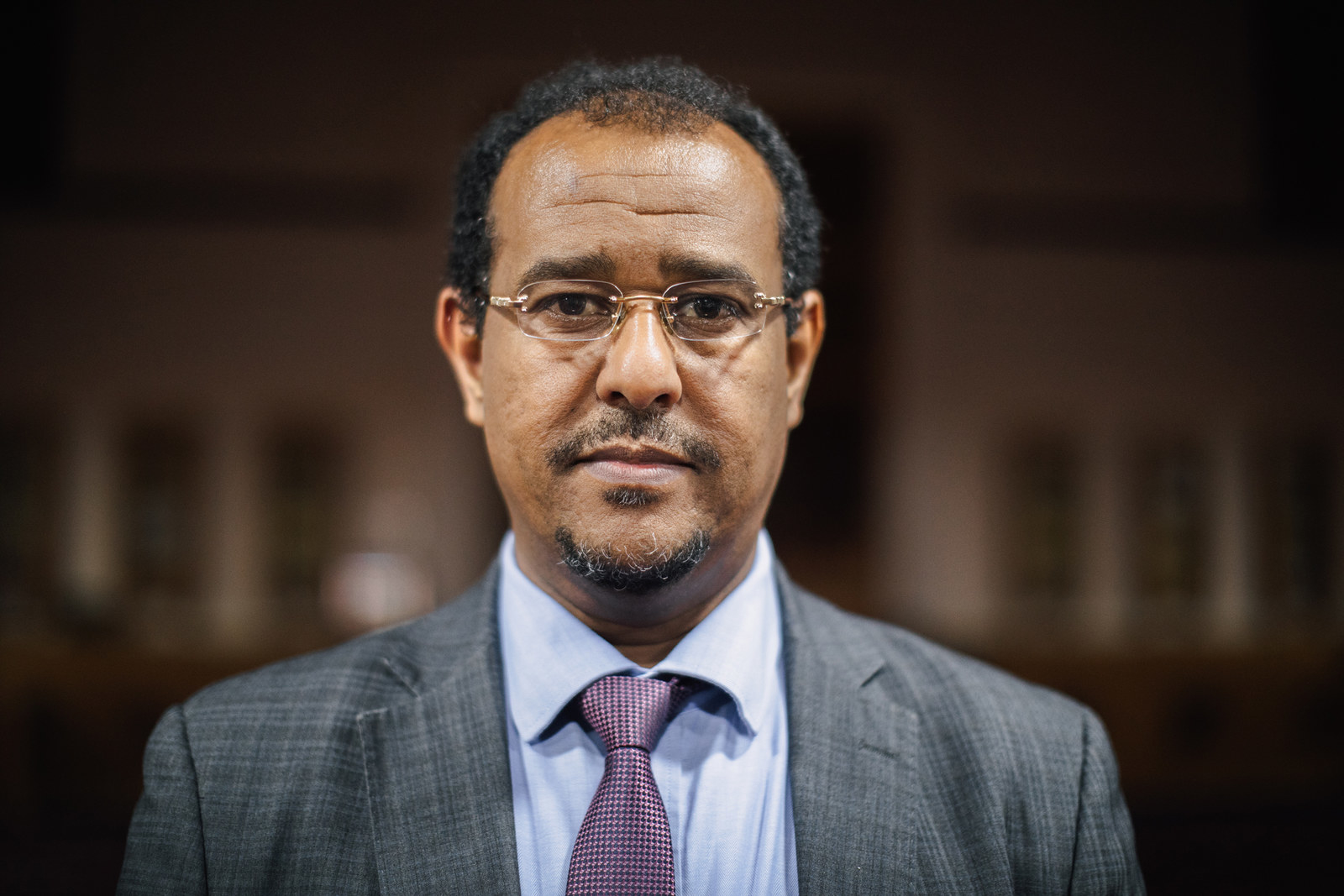
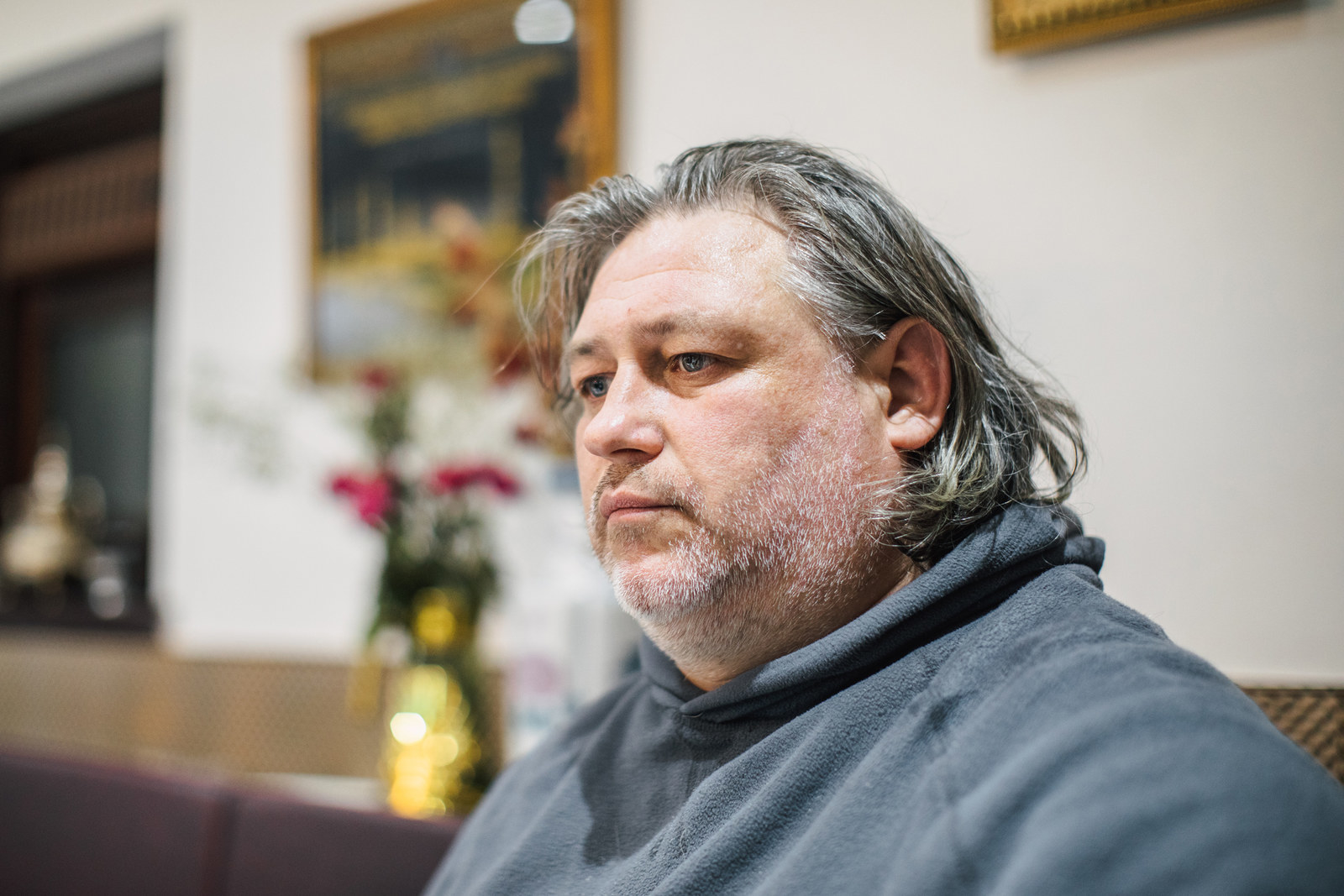
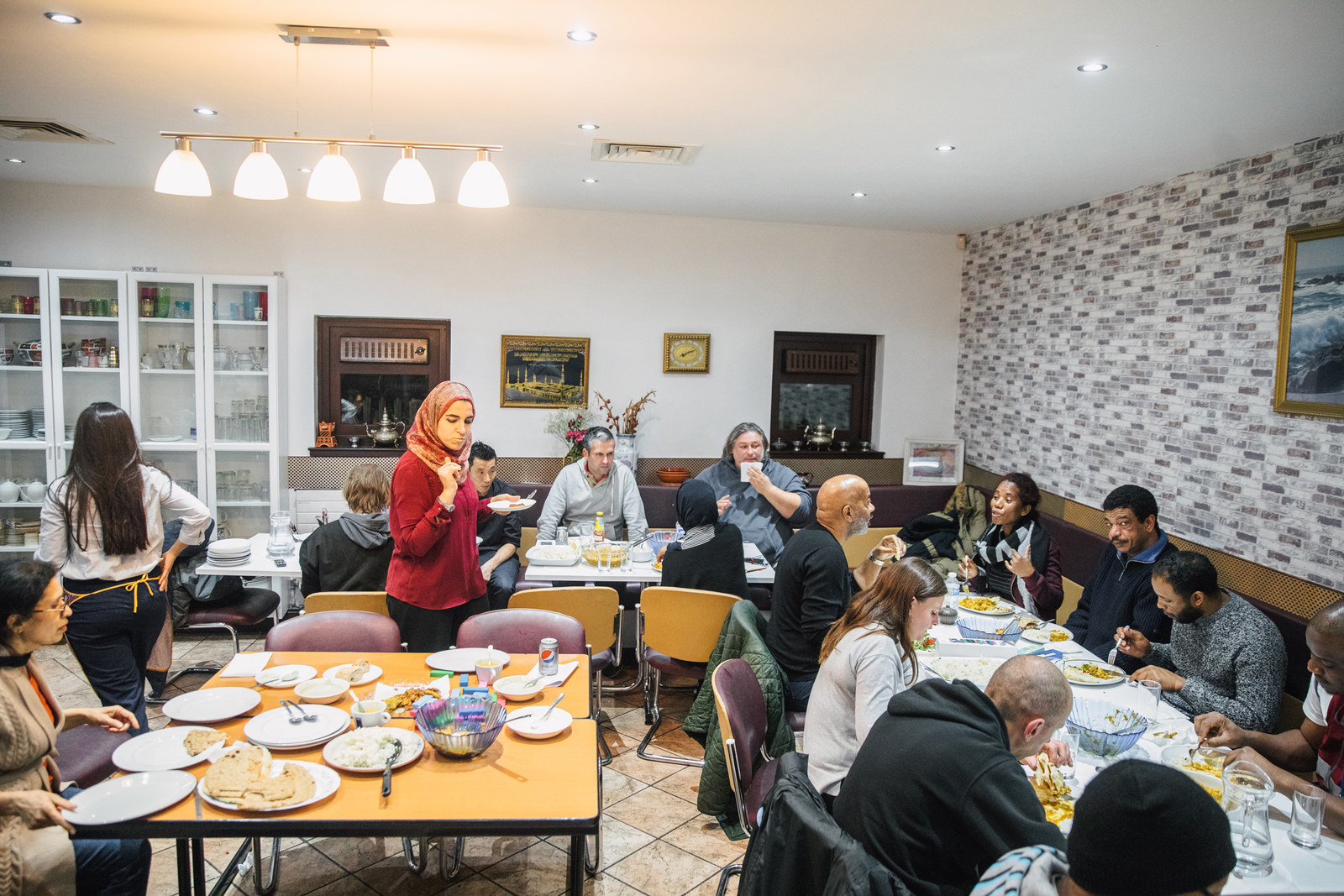
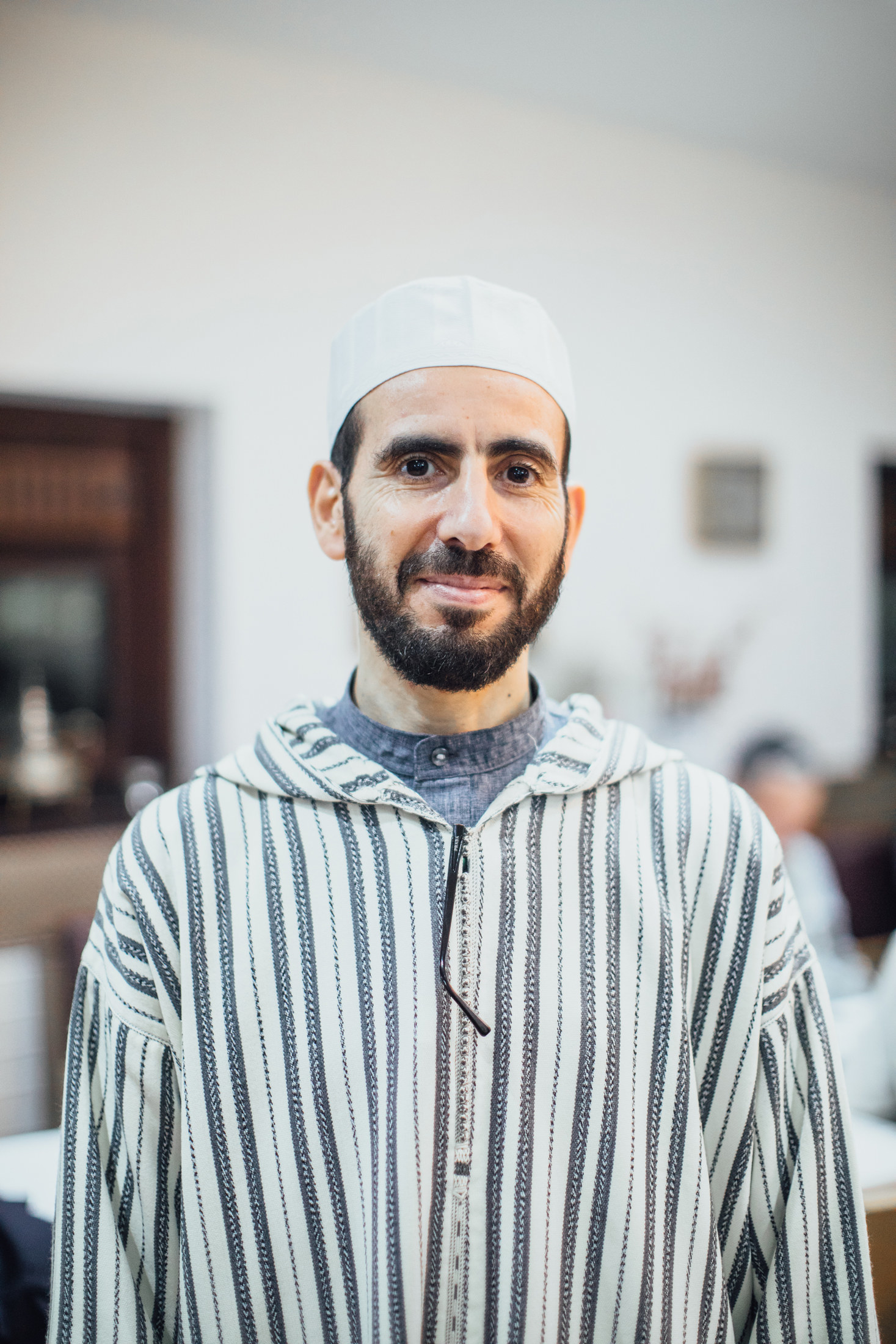
“There’s a huge amount of homelessness and poverty within our community that’s not addressed,” she says, adding that she found it “sad yet beautiful” that homeless Muslim guests had been praying in the basement of a church because the mosques were not open to them as shelters. “Why is it that our people from our own community who find themselves homeless don’t turn to our community or the mosque, but go to churches or day centres?”
Despite the multiple challenges, Ahmed is keen for more mosques to join the scheme. A former guest at the project now works as a security guard and stays over at the mosque each Tuesday when it runs as a shelter, she says. “The way they can help individuals get jobs and kind of help them move on has been absolutely beautiful to see.”
Peter Mwaniki, the WLM Night Shelter Coordinator, has been working with homeless people for 21 years. WLM also runs its day shelter at Seymour Place, where 100 people come through the door each week for a hot breakfast, laundry, employment advice, or to visit the onsite health team. “I think one of the most important things is a welcome, so that someone can suddenly feel they can exhale,” Mwaniki says.
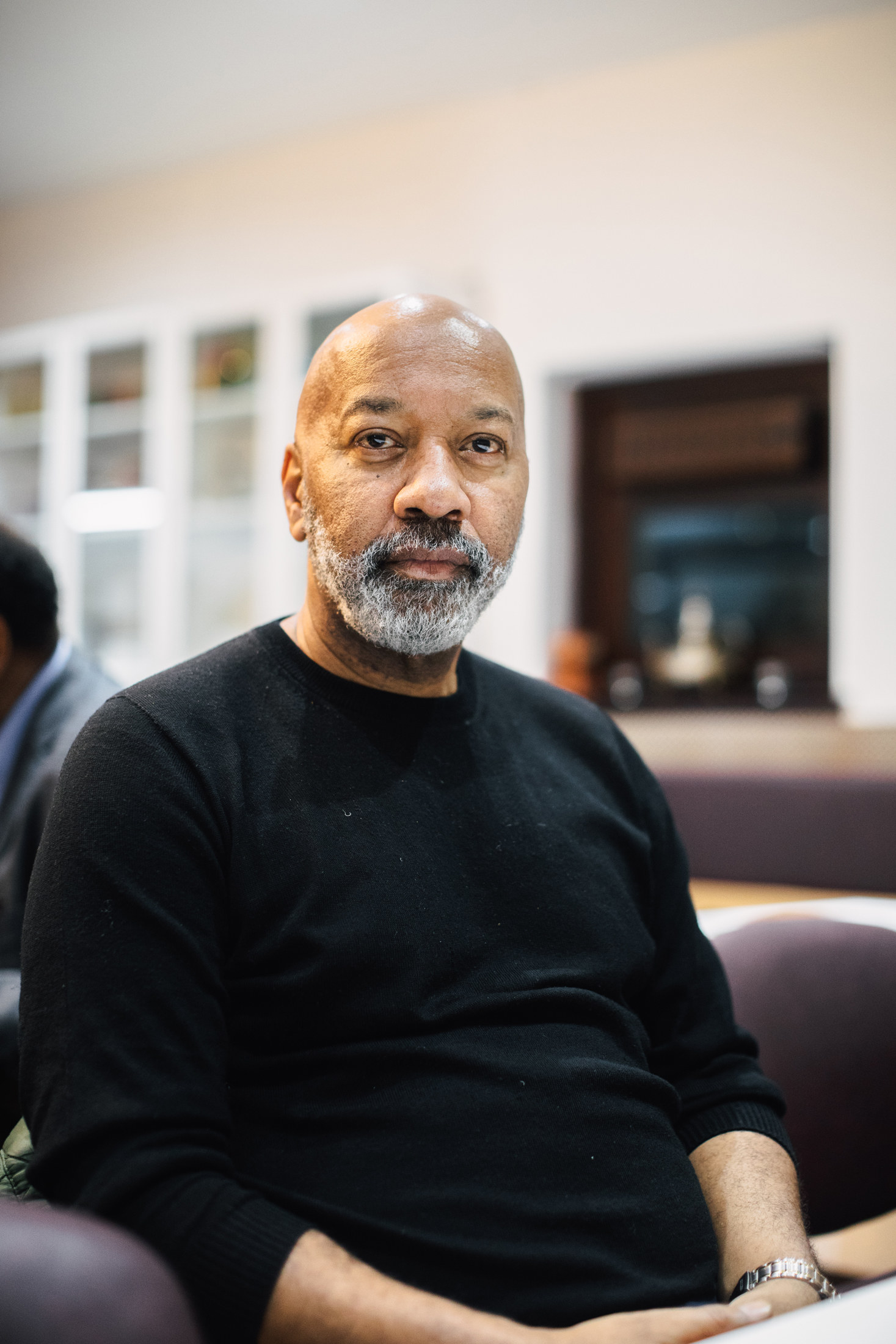
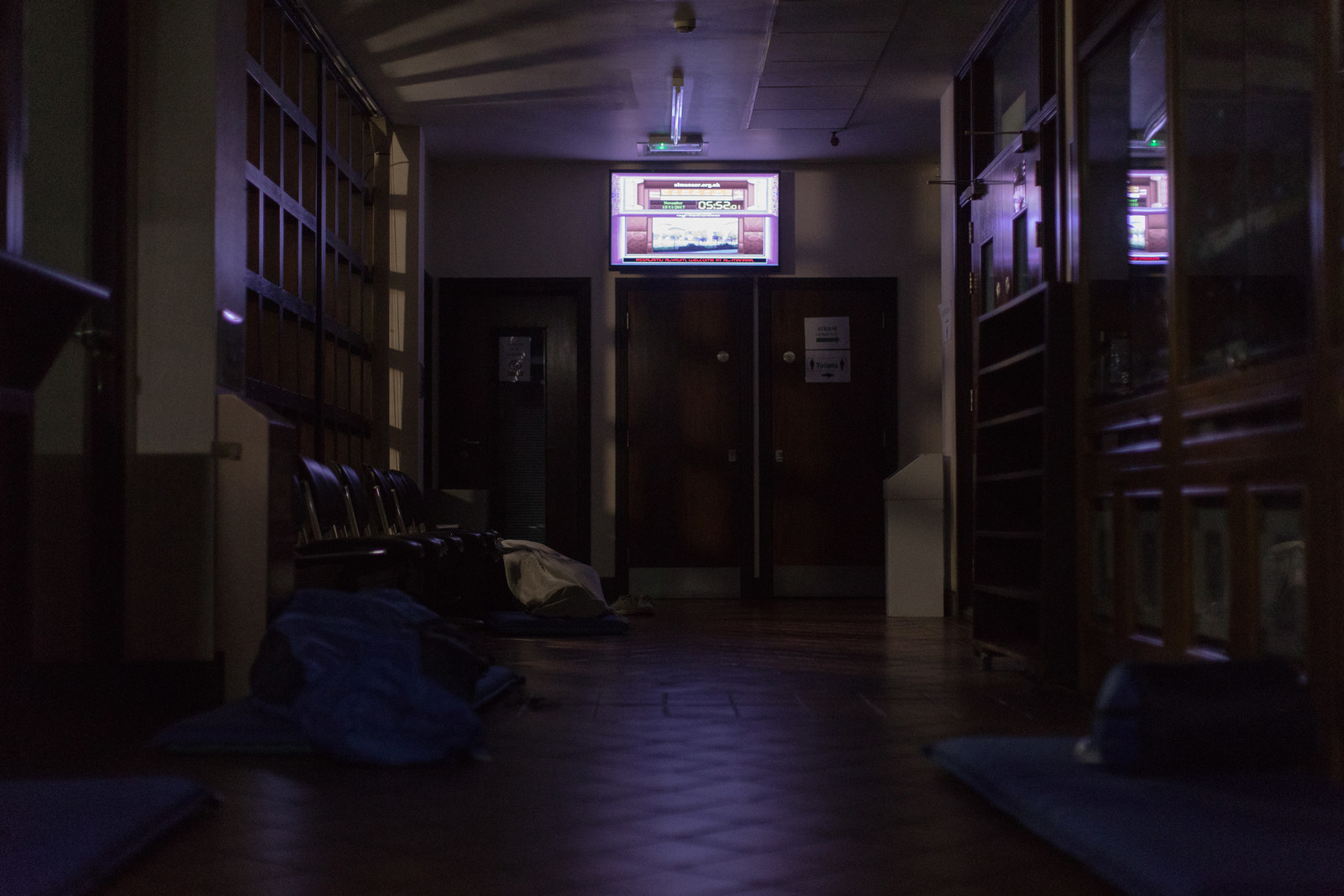
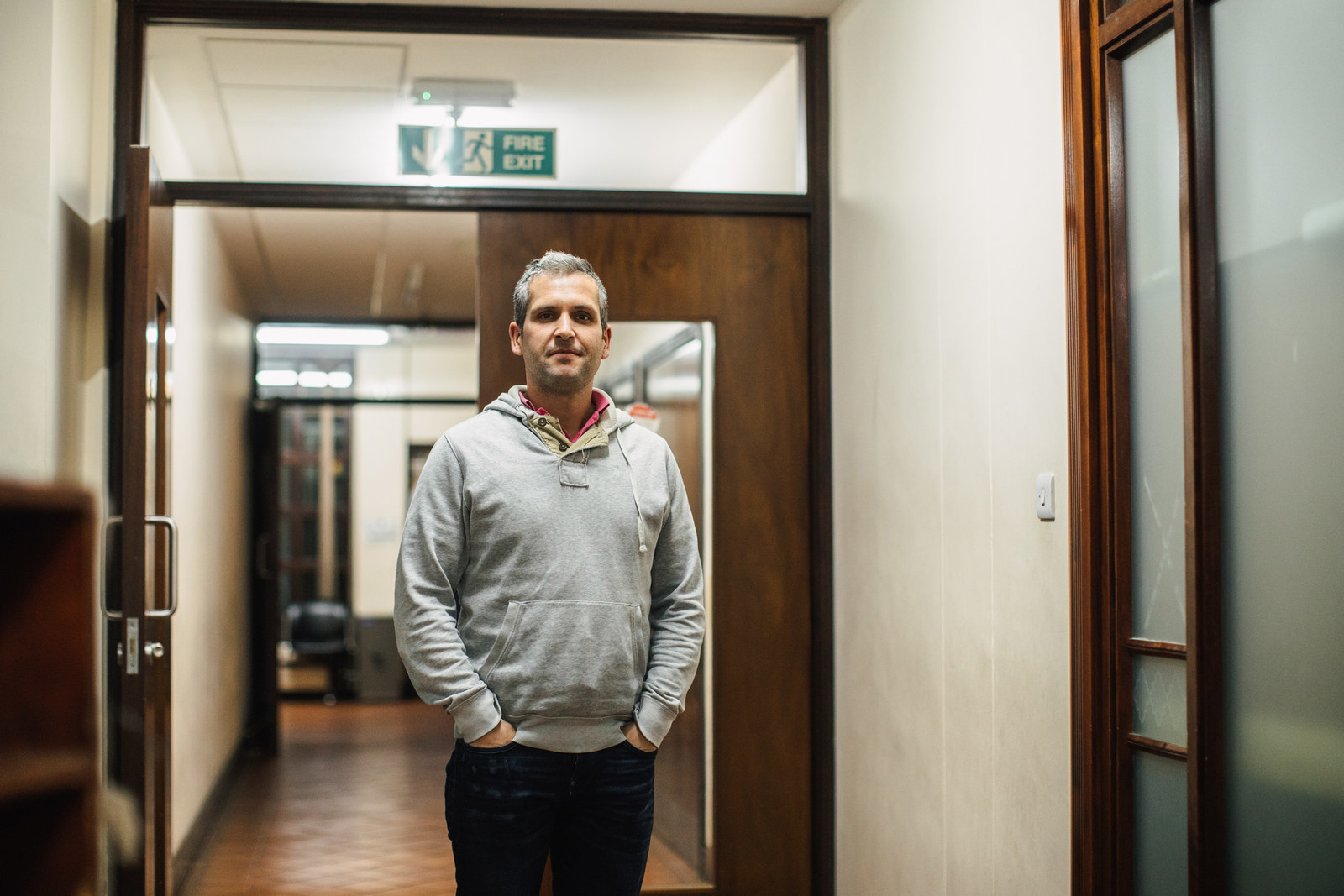
But the WLM scheme has been a lifeline for Ali, and he’s especially valued spending time with different religious groups – including making a Jewish friend for the first time. “From the mosque to the church to the synagogue… I don’t want to exaggerate but through this charity and the day centre, this community can be healed because [it is really] diverse, and I’ve met different people.
“I felt I’m part of a family and not alone.”
